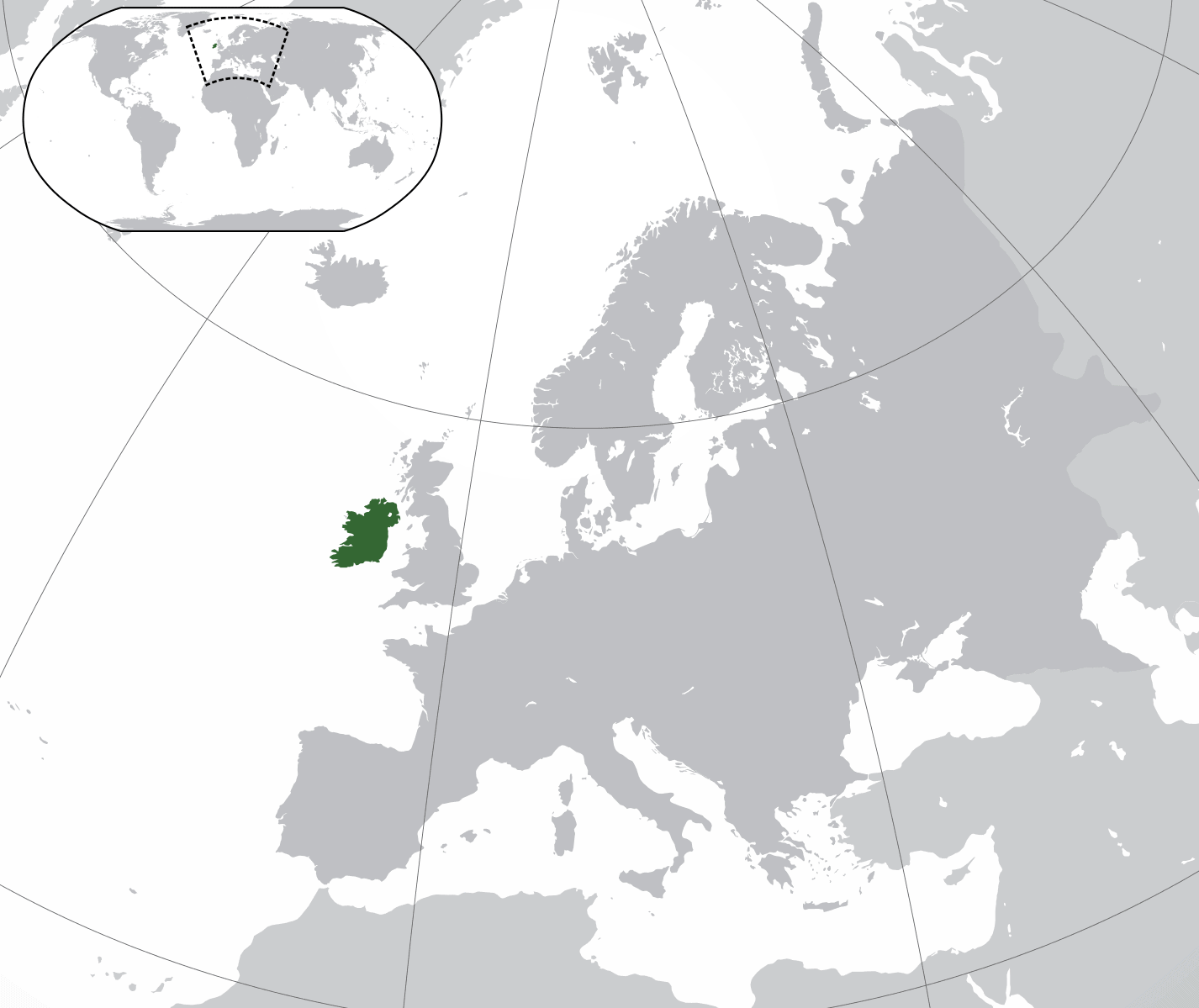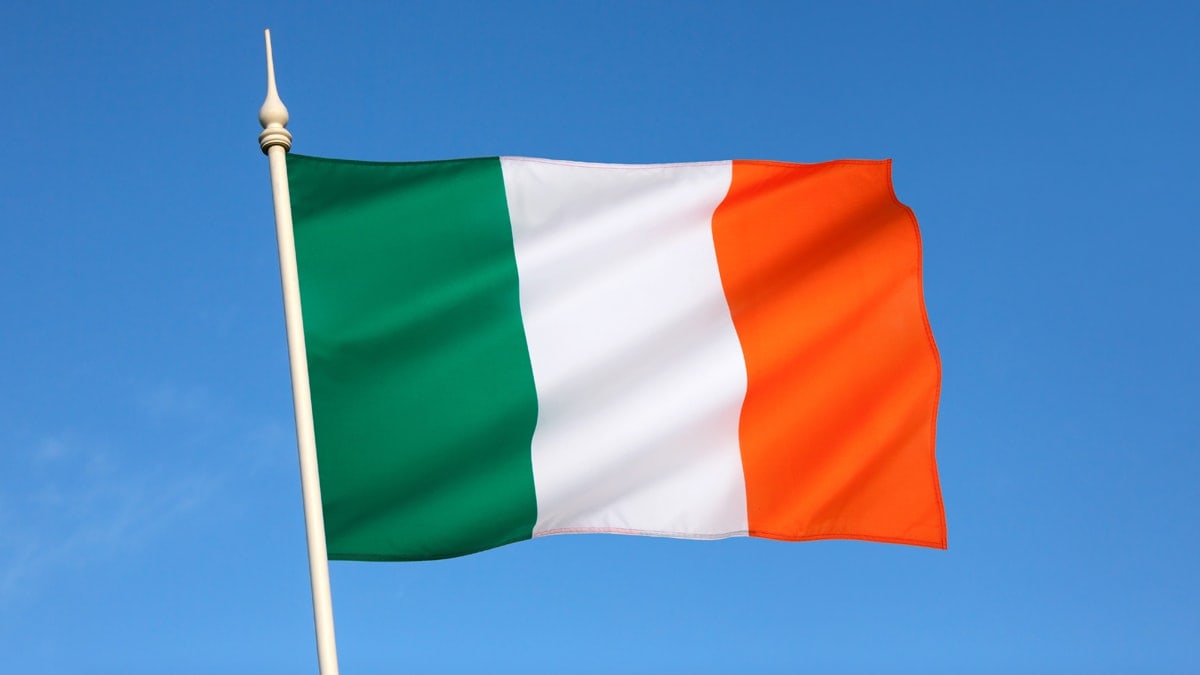Estimated reading time: 8 minutes
The Republic of Ireland is a small, beautiful and culture-packed country with huge diversity between the bustle and energy of Dublin, a popular tourist destination with global travellers, and the wide-open hills and countryside.
As the most westerly country within Europe, the island has become a strategic location for multinational employers, with major sea and air routes to North America. It ranks highly in economic performance and development as a growing, stable economy.
Nicknamed the Emerald Isle for its lush vegetation, primarily owing to the regular year-round rainfall, Ireland has cemented its status as an attractive place for businesses and entrepreneurs with one of the lowest EU corporation tax rates. Major employers, including PayPal, Facebook, Google and Microsoft, have offices in Dublin.
Although Ireland may not be warm and sunny, it is also mild, without severe weather, and has some of the most beautiful scenery possible, from the dramatic Cliffs of Moher to the Connemara wilderness and the Wild Atlantic Way, stretching from Donegal through to Cork.
While the Immigrant Investor Programme closed in February 2023, there remain ways to secure Irish residency, whether as a UK national relocating under the Common Travel Area (CTA) agreement or a third-country or non-EU national applying for a residency visa.
Table of contents
About Ireland
Currency
Euro (EUR)
Capital
Dublin is the Irish capital, a city of 544,000 people and situated on the east coast, famous for Dublin Castle, St Patrick’s Cathedral and multiple city parks.
Towns and cities
The largest cities in Ireland by population size are Dublin, Cork, Galway, Limerick and Waterford.
Population
5.033 million
British expats
Roughly 300,000 UK nationals live in the Republic of Ireland.
Languages
The vast majority of people in Ireland speak English, although around 40 per cent can speak at least some Irish.
Climate
Ireland is famous for its heavy rainfall, although the climate is mild and tends to have few extreme temperatures. The weather is linked to the large stretches of coastlines, exposed to the Atlantic and the Gulf Stream, where summer temperatures average at 12°C to 16°C (54°F to 60°F), and winters 3°C to 7°C (39°F to 45°F).
GDP
Ireland’s Gross Domestic Product (GDP) is $504.2 billion (£404.4 billion), with economic growth partially due to the number of multinationals based within its borders. The main industries in Ireland are pharmaceuticals, food products, organic chemicals, and computer hardware.
Map

Source: Wikipedia
Ireland is a large island to the western edge of Europe, split into the Republic of Ireland to the south, and Northern Ireland, a devolved nation of the United Kingdom. The island is the second biggest in the European continent after Great Britain, and the Republic is a full member of the EU.
Residence By Investment Options
The previous Immigrant Investor Programme (IIP) was disbanded in February 2023. However, there are other ways to gain formal residency, often leading to long-term residency and citizenship for foreign nationals who physically live in Ireland.
One of the primary alternatives is the Start-up Entrepreneur Programme, or STEP, which has been available since 2012 and allows expats to gain residency with funding of €50,000 (£43,395) invested in any business proposal that demonstrates innovation and the potential for success.
Applicants must meet the following qualification requirements:
- Good character – foreign nationals need to demonstrate that they do not have any serious criminal convictions.
- Submit a proposal outlining their business plan and how it will benefit the Irish economy.
- Provide evidence of the source of their investment funds.
While processing times are fairly swift, the evaluation committee meets once per quarter, so it normally takes several months to receive a response.
Non-EU nationals can apply, along with family members, including those outside of the Common Travel Area or who are UK residents but not British citizens. The aim of the STEP scheme is to stimulate investment and attract new business ideas which will contribute to the economy.
Applicants must be over 18 and can include a spouse or partner and children aged under 18. If they are applying with a business partner or any non-family member, the minimum investment funds increase to €50,000 (£43,395) for applicant one, plus a further €30,000 (£26,037) for every additional applicant.
Travel
Foreign nationals who qualify for an entrepreneur visa will receive a multi-entry visa, with the same access for all dependents included on the application. They can travel freely to and from Ireland and may become eligible for permanent residency after five years.
Residents with one year of continuous residence and four years of residence in the previous eight years may be able to apply for citizenship by naturalisation. Irish citizens are also EU citizens and can travel visa-free throughout the Schengen Zone.
Timescale
Most applications take between nine and twelve months to be approved.
Visas
British nationals do not need a visa to travel to Ireland, as it is included within the Common Travel Area (CTA). UK citizens can also work, live or study in Ireland, although they will not necessarily have access to some public services.
Learn more about Irish visas, entry conditions and residency.
Tax
Tax residency differs from residency status because a person could be a UK national living in Ireland for part of the year but remain liable for taxes payable to HMRC in Britain.
In most cases, you become an Irish tax resident if you live there for 183 days per year or more or spend 280 days in Ireland across two consecutive years – you will then be taxable as a tax resident in Ireland for the second of the two years.
Irish taxes are similar to those in the UK, but rather than National Insurance, taxpayers pay Pay-Related Social Insurance (PRSI) and Universal Social Charges (USC), automatically deducted from employment income. Expats moving to Ireland who expect to work will need to register for a Personal Public Service Number (PPSN).
Need Help with your Finances?
Cost Of Living
On average, Ireland is slightly more expensive than the UK, with consumer costs 12.9 per cent higher and rental prices 40.6 per cent higher. However, much depends on where you live, since relocating from London to Dublin will mean you spend 14.8 per cent less on rent and 5 per cent less on general expenses.
The average single person living in Ireland requires a monthly budget of £821, excluding accommodation, and for a family of four, £2,872 per month.
Property
There are no restrictions on the property you can buy in Ireland, whether relocating under the Common Travel Area agreement, applying for formal residency, or moving to the country as an EU citizen. However, owning a property does not necessarily mean becoming a tax resident and will not impact your future permanent residency or citizenship eligibility.
Properties available to rent or buy range from modern apartments to rural farmhouses, period cottages in fishing villages, and contemporary city centre developments.
Rental properties are widely available in larger cities, and since the primary language is English, communications and tenancy agreements are all easy to understand.
| One-bedroom city centre apartment | €1,420 / £1,232 |
| One-bedroom apartment elsewhere | €1,246 / £1,081 |
| Three-bedroom city centre apartment | €2,506 / £2,175 |
| Three-bedroom apartment elsewhere | €1,996 / £1,732 |
View Irish properties for sale listed on Rightmove.
Healthcare
UK nationals can access the Irish healthcare system at any time, although they will need to provide evidence of their citizenship, such as a passport. However, those visiting temporarily or travelling for holidays will only be entitled to necessary healthcare, which cannot wait until they return to the UK.
Ireland Residence By Investment FAQ
British citizens cannot have residency rights withdrawn under the Common Travel Area agreement. However, the government may reject a long-term residency permit or citizenship application for compliance reasons, and expats may be refused employment without a criminal records check.
The most common reason for a residency application to be rejected is an error, inconsistency or omission on the application paperwork or where the applicant cannot provide mandatory documents such as a police clearance certificate.
Flight times are normally around one hour and twenty minutes, depending on the airports you depart from and arrive at.
The Republic of Ireland is an EU member, so it uses the Euro (EUR).
No, UK nationals can travel freely to and from Ireland without a visa, and vice versa, as part of the Common Travel Area (CTA) agreement. However, they may wish to apply for a formal visa depending on their citizenship status and whether they are UK domiciled or live in Britain as foreign national residents.
Both Irish and British citizens can apply for settled status in either country, but CTA travel rights and the ability to work and live in either country are separate from Ireland’s EU member status.
Related Information
Below is a list of related articles you may find of interest.
Resources
- Irish Naturalisation and Immigration Service (INIS) – Official website providing information on Irish visas, residency, and immigration: https://www.inis.gov.ie/
- Department of Justice and Equality – Government department responsible for immigration and citizenship matters in Ireland: https://www.justice.ie/
- Enterprise Ireland – Official website for Ireland’s national economic development agency, providing information on business and investment opportunities: https://www.enterprise-ireland.com/
- Central Statistics Office (CSO) – Official statistical agency of Ireland, providing data on population, GDP, and other relevant economic indicators: https://www.cso.ie/
- Citizens Information – Comprehensive resource providing information on various topics including taxation, healthcare, housing, and more: https://www.citizensinformation.ie/
